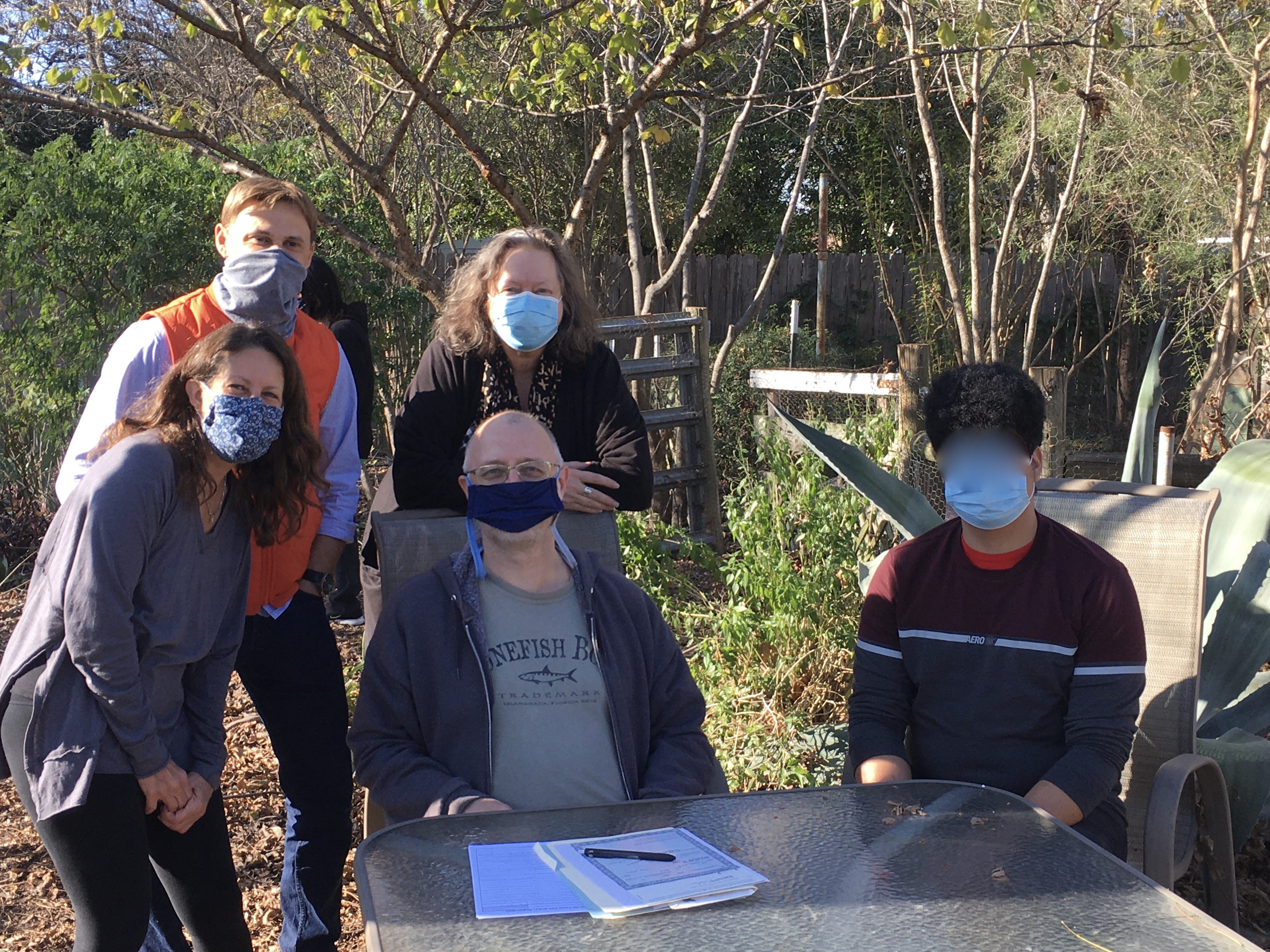
I’ve always been fascinated by paths, particularly the meandering kind. As a child, I spent many happy hours following cowpaths in my grandfather’s pasture, marveling over the path’s contours as they whimsied through the countryside. Sometimes several trails converged at the same spot with signs of loitering about before diverging once again to continue to another destination.
The same is true of the intersections that happen when seemingly unrelated people connect by chance. That is how I would describe a recent encounter between R, Carrie, Ahmed, and me. I met R when I took him and his mother to San Antonio for an immigration hearing. R’s mother and I met about a year earlier when I accompanied her to an appointment in San Antonio. R has lived in Austin since he was a small child and graduated high school in 2020. He and his mother lived with extended family in a small apartment in Austin. R is currently working and attending college classes.
Separately, I had met Carrie in person only once at a gathering at my neighbor’s home a little more than a year ago. Carrie and I hit it off and “friended” each other on Facebook, where we kept up with each other’s comings and goings. I was saddened to see Carrie’s Facebook announcement one day that her family was moving to The Netherlands right after Thanksgiving. Carrie’s husband, Hans, grew up there and would finally be going back home after more than 20 years. With the move to The Netherlands, for the first time, Carrie would be an immigrant.
I met Ahmed when he became a case manager for the Refugee Services of Texas’s Asylum Seekers Assistance Program (ASAP) in Austin, Texas. Ahmed and his family emigrated to Texas from Egypt and Mexico. Ahmed a leader of the Arab Spring forced to flee Egypt following violence and death threats against him and his family. They lived in Mexico for a time and built a successful business there but were once again forced to flee after receiving extortion attempts and death threats. A resident now of Texas, Ahmed works with Austin families seeking asylum to find legal services, affordable housing, food, medical care, and other resources. A group of us meet virtually with Ahmed every week to discuss the current needs of the families and how to meet those needs.
And so when Carrie texted me in November offering to give their car to an immigrant family and asking if I knew anyone who could use it, I took the offer to Ahmed and the other volunteers to discuss a potential recipient. After some discussion, R was selected. Carrie and her family, Ahmed, and R and his sister met in my backyard to sign papers. Communing briefly together, we marveled at the synchronicity and happenstance of how our paths perfectly converged for this moment.
The gifted car sits idly in my driveway waiting for R to take the driving test later this month. Immediately after receiving his license, Ahmed will bring R to my house to pick up the car, and R will drive it down the interstate to his home.